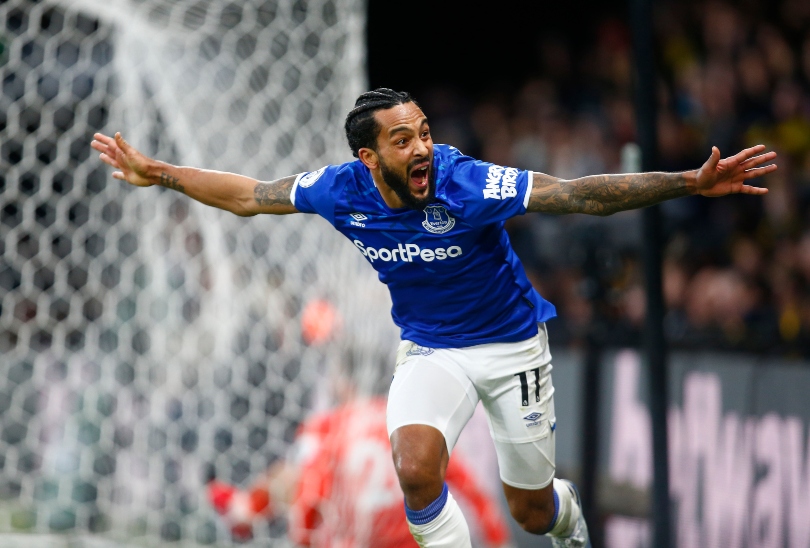Why Theo Walcott's move to Southampton is more than just a nostalgia trip
Southampton's loan signing of Theo Walcott could be seen as a misguided romantic reunion – but it actually makes a lot of sense

When Theo Walcott made his Southampton debut, it was alongside Dennis Wise, who had won the FA Cup before his teenage team-mate was born, and who turns 54 in December. An opponent was Paul Ince, who is 53 later this month. His first manager was Harry Redknapp, who is now 73. He played under the caretaker Dave Bassett, who is now 76. Even without counting Ralph Hasenhuttl, Walcott has not featured in any of the last 10 ‘permanent’ Saints managers’ reigns.
All of which is a long-winded way of saying that he has been gone a long time. And yet the youngest player selected for the 2006 World Cup, chosen when his previous league game was Southampton’s Championship defeat to QPR, is still only 31. Walcott has been gone for almost half a lifetime, but he is still more than two years younger than Shane Long and faster than another ageing forward who relies on his running power.
The romantic return can be a misguided affair. The list of players who have achieved less in their second spell at a club than their first is lengthy, and in many cases a comeback is swathed in sentimentality that makes it all the sadder. And yet for Southampton and Walcott alike, this is low-risk homecoming; a loan deal means neither is tied to the other for the long term and, with Everton paying much of the winger’s wages, where Saints have relatively little to lose.
There are financial and footballing reasons to believe this deal makes sense. “Theo is someone who has all the qualities to fit well into our team and our style of play,” said Hasenhuttl. The length of Walcott’s career has not stripped him of his fundamental attribute: if he probably cannot cover 100 metres in 10.6 seconds any more, he remains enviably quick. Hasenhuttl’s high-speed style of football requires athletes. In Danny Ings, Che Adams, Nathan Redmond and Walcott, he could have a formidably sharp front four.

Indeed, Walcott has the potential to prove the right-sided Redmond, forming the other support to the strikers in Hasenhuttl’s 4-2-2-2 formation. Stuart Armstrong has flourished in that role, but is more of a midfielder by trade. Moussa Djenepo, who scored against West Bromwich Albion while deputising for Redmond, is capable of spectacular goals but scores too rarely.
And Walcott, in contrast, could bring the firepower to reduce the reliance on Ings (which, as he cannot reasonably be expected to score 22 league goals in a season again, is required). His time at Everton was one of diminishing returns: after five goals in his first 17 games, there were only six in 68. And yet he had drifted to the fringes under managers who did not sign him. He will never recapture the potency he displayed in his 21-goal season of 2012/13, but he is a better finisher than his critics have often acknowledged; for one whose career has largely been spent on the flanks, 124 goals is an excellent return. And should Adams lose his scoring touch, Walcott could be a more productive sidekick to Ings than Long, the king of the non-scoring strikers.
The regret may be not that Walcott went back, but that he didn’t do it sooner.
Get FourFourTwo Newsletter
The best features, fun and footballing quizzes, straight to your inbox every week.
It's been a while since Theo Walcott was scoring goals for Southampton! ⏮ pic.twitter.com/LKKA00FGqCOctober 6, 2020
Southampton wanted Walcott when he joined Everton in January 2018. That decision was a mistake, for him and them: Sam Allardyce’s reign never promised longevity and yet Everton gave him money while lumbering his successor, Marco Silva, with Cenk Tosun and Walcott, his predecessor’s players, rather than an increased budget.
The nostalgic return could have come earlier. If it takes Walcott back to where he began, it is a transfer in keeping with Southampton’s traditions. Lawrie McMenemy had a habit of signing players he would not have been able to afford before their 30th birthday. He also tended to bring old Saints back to the club, as Mick Channon, Alan Ball and Ivan Golac show. Walcott, the youngest player in Southampton’s history and now one of their oldest at the club, has joined a distinguished group. Both he and they could benefit.
While you’re here, why not subscribe to the mag - and get your first five issues for just £5!
NOW READ
RICH JOLLY Why this is a transfer window defined by deadwood more than big signings
CHRIS FLANAGAN Forget the Premier League: it’s fans of clubs like Harrogate who are being robbed of their moment
GUIDE Premier League live stream best VPN: how to watch every game from anywhere in the world
Richard Jolly also writes for the National, the Guardian, the Observer, the Straits Times, the Independent, Sporting Life, Football 365 and the Blizzard. He has written for the FourFourTwo website since 2018 and for the magazine in the 1990s and the 2020s, but not in between. He has covered 1500+ games and remembers a disturbing number of the 0-0 draws.

